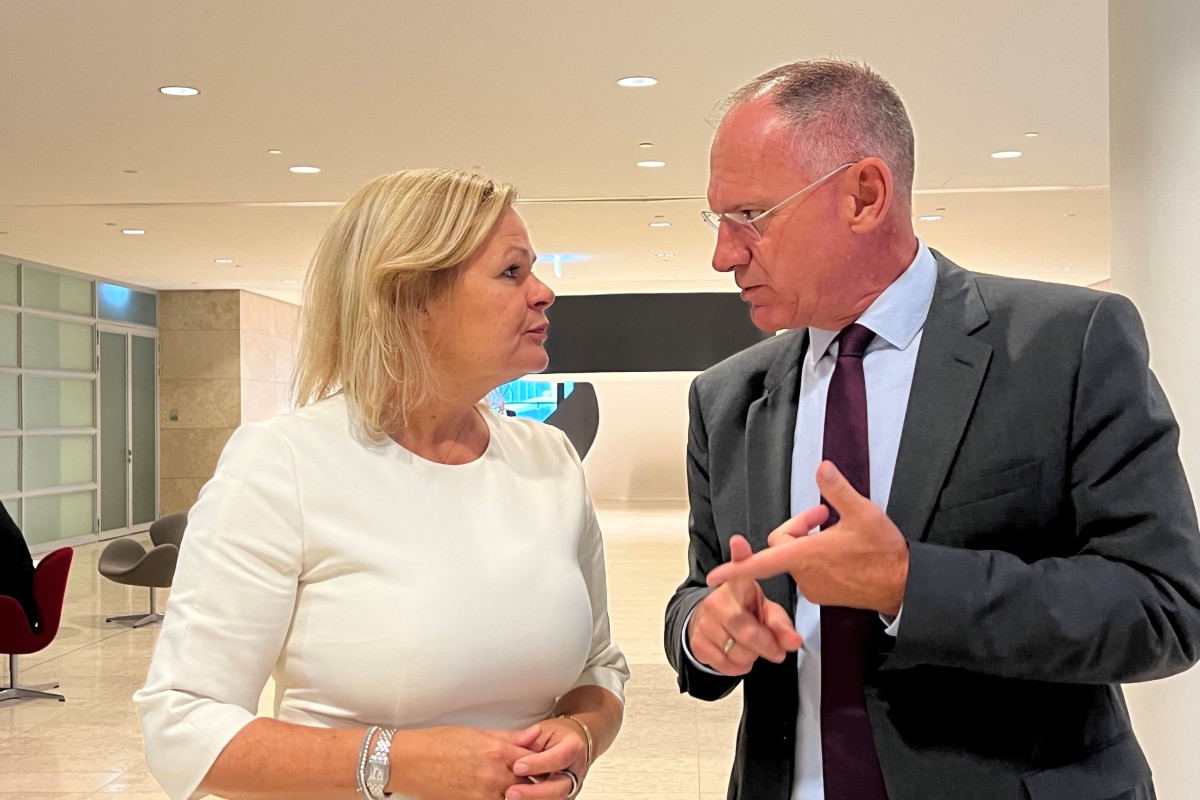Sponsored Content
German and Austrian Interior Ministers Discuss Migration Issues
The German Interior Minister Nancy Faeser and her Austrian counterpart Gerhard Karner recently discussed the current migration issue on the sidelines of the EU Council of Interior Ministers. Karner insisted on a joint approach. Furthermore, the two discussed the preparations for the upcoming "Berlin Process".
 German Interior Minister Nancy Faeser together with her Austrian counterpart Gerhard Karner. / Picture: © BMI Bundesministerium für Inneres
German Interior Minister Nancy Faeser together with her Austrian counterpart Gerhard Karner. / Picture: © BMI Bundesministerium für Inneres
On the sidelines of the EU Council of Interior Ministers, the two interior ministers of Germany and Austria held bilateral talks on the sensitive issue of migration. In addition to the migration situation, the working meeting focused on preparations for the Berlin Summit on 20 October.
Migration has been a much-discussed topic in Austria in recent weeks. For some weeks now, more…
or Log In
Fast News Search





